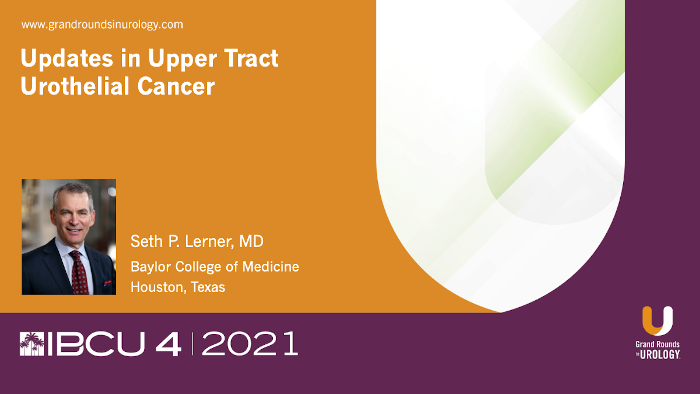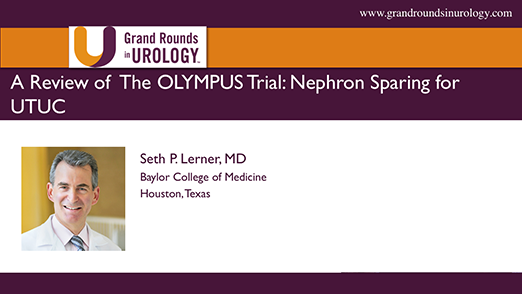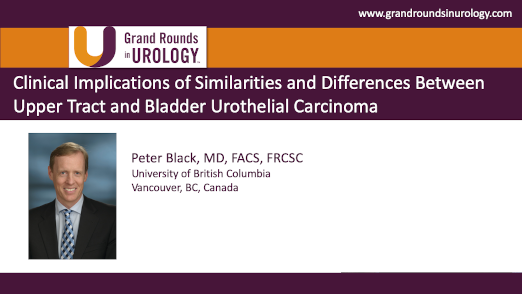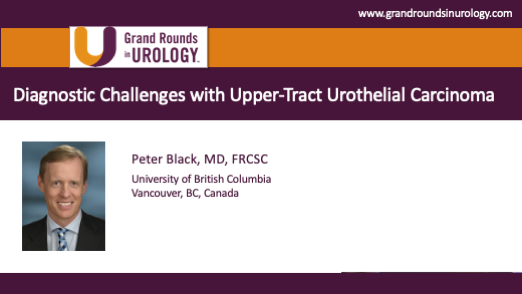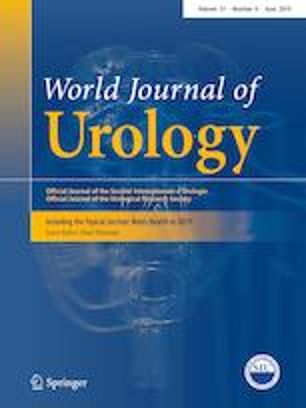Upper tract urothelial carcinoma (UTUC) is cancer of the transitional urothelial cells that line the upper urothelial tract of the renal pelvis and ureter. This type of cancer accounts for between 5% and 10% of urothelial cancer cases. It’s the fourth most common cancer in men, but less common in women. In UTUC, the mean age of a patient diagnosed is 73 years. It can occur 3% of the time in both upper tracts (ureters or renal pelvis). Seventeen percent of the time, it occurs concurrently with bladder cancer. UTUC has similarities to bladder cancer in that it can become muscle invasive, which worsens the prognosis. UTUC is associated with a high local recurrence rate and a high rate of metastasis, and the prognosis also correlates to the stage of cancer at initial diagnosis. It is estimated that 60% of UTUC cases are invasive at initial diagnosis.
New therapeutic options for UTUC would be highly influential in treating UTUC patients, because there are currently no FDA-approved drugs for the disease. Recently, promising research has been published. In 2017, the European Association of Urology (EAU) Guidelines Panel on Upper Urinary Tract Urothelial Carcinoma (UTUC) has prepared updated guidelines to aid clinicians in the current evidence-based management of UTUC and to incorporate recommendations into clinical practice. Data from the phase III POUT clinical trial, presented in February 2018, demonstrated that adjuvant platinum-based chemotherapy improves disease-free survival (DFS) and metastasis-free survival (MFS) in patients with UTUC.
In May 2018, an interim analysis of the ongoing pivotal Phase 3 OLYMPUS clinical trial of UGN-101, an investigational mitomycin formulation for the non-surgical treatment of low-grade UTUC, was released. The international, multi-center trial displayed a complete response (CR) rate of 59% in 34 patients who were evaluated for primary disease evaluation (PDE, or the primary endpoint) in the interim analysis. According to the data, 20 of the interim analysis intent to treat the population of 34 patients (59%) achieved a CR, defined as a negative ureteroscopic evaluation and a negative wash cytology. Five of 34 patients (15%) experienced a partial response, and 39%, roughly, of tumors treated were categorized as unresectable by surgery at baseline. The OLYMPUS trial is continuing to enroll patients, and in the second half of 2018, top-line results are expected.


